
|
|
Links: Home U.S. Delegation U.S. Sponsors U.S. Paper U.S. Poster Dissemination Proceedings Conference Photos 3rd Conference 2nd Conference 1st Conference Related Resources Contact Us |
| ||||||||||||||||||||||||||||||||||||||||||||||||||||||||||||
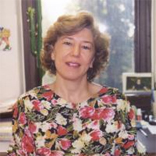 Nora Berrah Western Michigan University nora.berrah@wmich.edu
|
Nora Berrah is University distinguished faculty scholar and professor of physics at WMU. She has a Master’s degree from the University of Algiers, Algeria and a Ph.D. in physics from UVA. Dr. Berrah has worked in higher education, as well as at a Department of Energy laboratory (ANL). Here research is laser based as well as light sources based. Her research program at the Advanced Light Source at LBNL has evolved from the investigation of innershell atomic and molecular structure using angleresolved photoelectron spectroscopy, to the study of the electronic and nuclear dynamics in complex molecules and clusters using momentum imaging and coincidence techniques. Her present and future research includes investigations using the vuv FEL in Hamburg Germany and the x-ray Linac Coherent Light Source (LCLS) FEL at SLAC, Stanford, where she is the co-team leader for AMO science. Specifically, she will utilize the unprecedented LCLS peak power to study nonlinear and strong-field effects by carrying out excitation, ionization and pump-probe measurements of atoms, molecules and clusters. She has been a Fellow of the American Physical Society since 1999, received the David S. Shirley Award for “Outstanding Scientific Achievements at the Advanced Light Source”, LBNL in 2002, has been a WMU Distinguished Faculty Scholar since 2000 and a Humboldt Fellow from the Alexander von Humboldt Foundation in 1992. She received numerous awards from the WMU Dean of A&S and President.
|
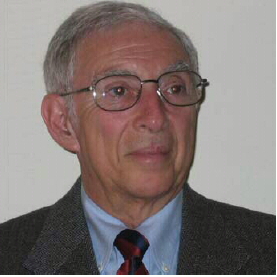 Arthur Bienenstock Stanford University arthurb@stanford.edu
|
Arthur Bienenstock, the President of the American Physical Society, is Special Assistant to the President for Federal Research Policy at Stanford University, where he also is Director of the Wallenberg Research Link and a professor at the Stanford Synchrotron Radiation Laboratory and in the Departments of Applied Physics and Materials Science & Engineering. He was Vice Provost and Dean of Research and Graduate Policy during the period September 2003 to November 2006. From September 2002 to September 2003, he also served as the Director of the Geballe Laboratory for Advanced Materials. From November, 1997 through January, 2001, while on leave from Stanford, he was the Associate Director for Science of the White House Office and Science and Technology Policy (OSTP). At OSTP, Dr. Bienenstock sought to gain general recognition of the interdependencies of the sciences and the need for the country to maintain broad scientific and technological strength. He also sought to ensure that the United States has a scientific and technological workforce, at all levels, to meets the nation's 21st Century needs. He led a Task Force on the Government-University Research Partnership aimed at strengthening the relationship, and championed an Interagency Educational Research Initiative to fund large-scale, interdisciplinary research on teaching and learning. Dr. Bienenstock received a B.S. (1955) and M.S. (1957) degree from the Polytechnic Institute of Brooklyn. He received his Ph.D. from Harvard University in 1962. In addition, he was a recipient of a Ph.D. (honorary) from Polytechnic University in 1997 and from Lund University in June, 2006.
|
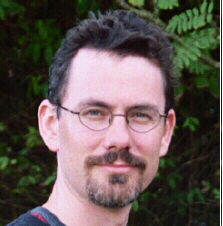 Jacob Clark Blickenstaff University of Southern Mississippi jclarkblickenstaff@gmail.com
|
After earning a bachelor’s degree in physics and a teaching certificate in secondary science, from the University of California, Davis, Jacob Clark Blickenstaff taught high school physics for five years in California’s central valley. His interest in gender and science education piqued by classroom teaching experiences, he returned to UC Davis to earn a Ph.D. in Science Education. A large NSF MSP project drew him to a Secondary Education/Science Education position at Western Washington University, where he worked with George Pinky Nelson. Most recently, he has become the Assistant Director of the Center for Science and Mathematics Education at the University of Southern Mississippi. His research areas of interest include student participation in laboratory work, recruitment and retention of non-traditional physics majors, and physics teacher education. Dr. Blickenstaff has served as a reviewer for NSF, NARST, ASTE, and the journal Gender and Education. He is a member of the AAPT Committee on Women in Physics, and has presented at several AAPT meetings. He writes a regular column for NSTA Reports reviewing popular movies for their science content and use in the science classroom.
|
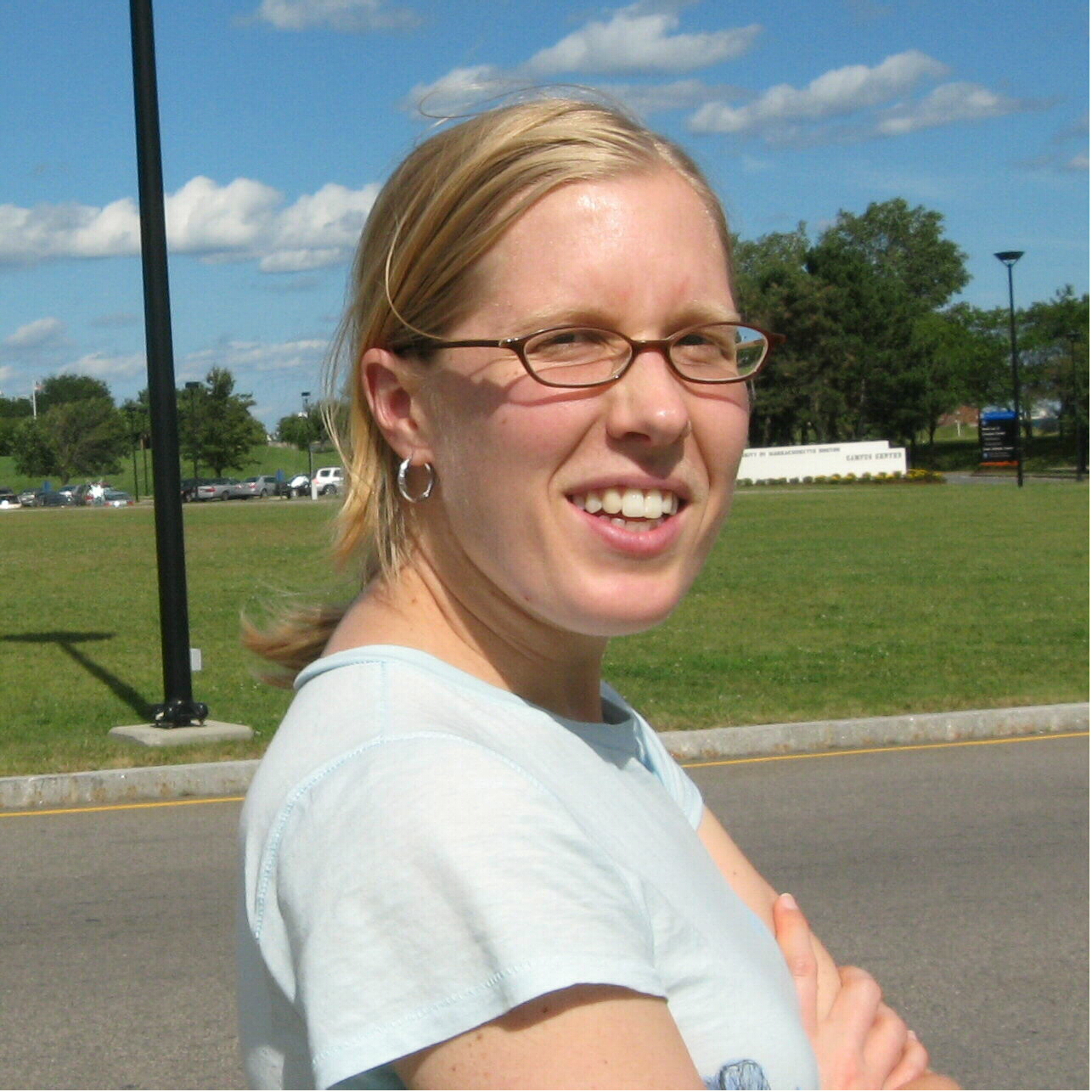 Amy Cassidy University of Southern California amycassi@usc.edu
|
Amy Cassidy is a PhD student at the University of Southern California in atomic physics theory. She completed a degree in physics education at the University of Delaware in 2000. Following graduation, she taught high school physics and math at the International School of Luxembourg. In 2003 she entered the PhD program at USC and is expected to graduate in May 2009. She is a co-founder of the Annual Conference for Undergraduate Women in Physics at the University of Southern California. The conference was first held at USC in 2006 and has now become an annual event at USC, as well as at Yale and in the Midwest. She has served as organizing committee co-chair for the 1st, 2 nd and 3rd conferences and has been recognized for her work with the USC Melon Award for Excellence in Mentoring in 2007.
|
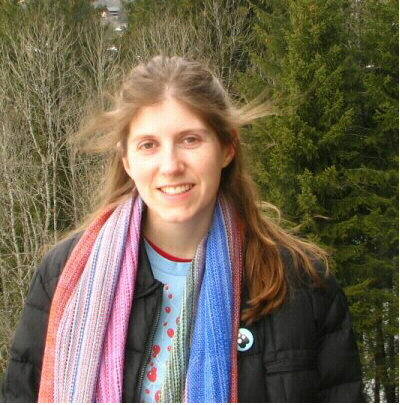 Emily Freeland University of Wisconsin - Madison freeland@astro.wisc.edu
|
Emily Freeland is a doctoral candidate in Astronomy at the University of Wisconsin. Her research interests include galaxy evolution and intergalactic gas in groups of galaxies and she will receive her Ph.D. in the spring of 2009. She attended Indiana University as undergraduate and received bachelor’s degrees in Astronomy and Mathematics. Emily has helped organize an after-school/Saturday science enrichment program for minority students through the Boys & Girls Club. She is interested in helping institutions develop family friendly policies and support networks for women and minorities. She is active in and helps organize meetings for Women of Wisconsin Strengthening Astronomy (WOWSA) which brings together female graduate students and more senior female scientists to discuss their experiences and network. In her free time she likes to bake, experiment with having a garden, and watch movies.
|
 Patrice Green Delaware State University pgreen@desu.edu
|
Patrice D. Green is a third year doctoral student in the department of the Applied Mathematics and Theoretical Physics Department at Delaware State University (DSU). She has earned a Bachelors of Science in Physics with an Engineering Emphasis and a Masters of Scie degree in Applied Mathematics from DSU. He area of research involves the analytic and numerical determination of nonlinear optical solitons developing from Kerr Law instabilities. This research is conducted in collaboration with her dissertation advisors, Dr. Anjan Biswas and Dr. Dawn A. Lott. Preliminary results for her dissertation have been submitted for publication. Ms. Green is a Center for Research and Education in Optical Sciences and Applications (CREOSA) fellow. This follows two successful years as an Applied Mathematics Research Center fellow. She holds memberships in the Graduate Council, the Graduate Curriculum Committee, the Graduate Student Organization, and is the President of Graduate Executive Committee.
|
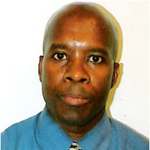 Paul Gueye Hampton University, Jefferson Lab paul.gueye@hamptonu.edu
|
Dr. Paul Guèye is a native of Senegal (West Africa), where he received a Bachelor of Physics and Chemistry in 1987 from the University Cheikh Anta Diop. He then moved to France and obtained his PhD in Nuclear Physics in 1994 from the University of Clermont-Ferrand II. In 1995, he joined the Physics Department at Hampton University and was part of the first experiments conducted at the Jefferson lab nuclear physics facility. During these years, he nurtured a strong interest for studying the strange quark, developed theoretical models, and various instrumentation tools. Since 2001, he is the head of the brachytherapy research and development group of the medical physics graduate program of Hampton University under which he patented novel techniques for ex-vivo and in-vivo measurements that has applications from cancer to heart diseases. Dr. Guèye is a board member and the Technical Executive Officer of the National Society of Black Physicists, and a member of the American Physical Society and the American Association of Physicists in Medicine within which he holds several chair functions: Minority Recruitment Sub-Committee, African Affairs Committee and Liaison for the American Institute for Physics in the Liaison Committee for Under-Represented Minority (AAPM), Pre-College Program Committee, Medical Physics and Nuclear/High Energy Physics Sections (NSBP). He has co-supervised the first two African-American female PhD students in nuclear physics and was the advisor of the only African-American female PhD student in medical physics from Hampton University. In 2008, he co-organized a 50 years of women in medical physics symposium during the 50th anniversary celebration of AAPM held during its 2008 annual meeting. He is highly involved in addressing minority issues in science, for both education (ranging from K-12 to graduate level) and professionals.
|
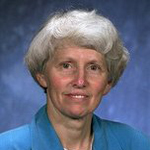 Beverly K. Hartline Delaware State University bhartline@desu.edu
|
Beverly K. Hartline is the dean of the College of Mathematics, Natural Sciences, and Technology at Delaware State University. Prior to coming to Delaware State University she has served in many capacities, including special assistant to the president of Heritage University in Toppenish Wash., and visiting professor of science; associate laboratory director at-large for Argonne National Laboratory and deputy laboratory director at the University of Chicago (2001-2003); the acting deputy associate Laboratory Director, Strategic and Supporting Research Directorate at Los Alamos National Laboratory (1998-2001); assistant director of Physical Sciences and Engineering at the White House Office of Scientific and Technology Policy (1996-1998); and associate director, education program director, and project manager for the Southeastern Research Association in Virginia (1985-1996). Hartline earned a Ph.D in Geophysics from the University of Washington in Seattle in 1978. She was elected a Fellow of the American Physical Society for her leadership and drive to advance physics and other science education at all education levels, including educator outreach and the general public. She has written numerous articles and papers including the conference proceedings for the first and 2nd International Conferences on Women in Physics sponsored by the IUPAP.
|
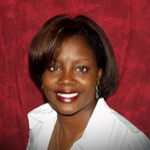 K. Renee Horton University of Alabama rhorton@mint.ua.edu
|
K. Renee Horton, one of the U.S. Delegation Co-Leaders, is a doctoral candidate in Material Science with a concentration in Physics. She is currently performing her dissertation research on graded recorded media at the Center for Materials Information Technology located at the University of Alabama and will be the first African American to graduate with a PhD in Material Science. She is currently a graduate teacher assistant teaching studio physics 101 and 105. Ms. Horton was a NASA Goddard Space Flight Center Graduate Student Research Fellow (2004-2007) and a Southern Regional Educational Board Fellow (2005-2008). She is a student executive board member and chairperson for the women in physics committee for the National Society of Black Physicists (NSBP), the Alabama and Georgia Science and Everyday Experience (SEE) coordinator for Delta Sigma Theta Sorority, Inc. She established and is currently the scientific outreach coordinator for the MINT Scientific Outreach Program (MINT SOUP). The program services 125 students in the city and county of Tuscaloosa. She was awarded the American Physical Society Topical Group on Magnetism and its Applications (GMAG) outreach grant in 2007. She was a member of the U.S. delegation team to the 2nd International Union of Pure and Applied Physics (IUPAP) International Conference on Women in Physics in 2005, held in Brazil. She is currently serving as Co-leader for the upcoming US delegation team for the 3rd IUPAP International Conference on Women in Physics in October 2008, to be held in Korea. She has been an invited speaker at the NSBP annual conference and at the American Physical Society (APS) annual March meeting. Ms Horton is the proud mother of three children, Eric 17, Malik 15 and Denise 9. Her greatest accomplishment outside of her family is her success in achieving her goals in spite of her hearing disability.
|
 Rachel Ivie American Institute of Physics rivie@aip.org
|
Rachel Ivie is Research Manager at the Statistical Research Center at the American Institute of Physics. She received her PhD in sociology from the University of North Carolina at Chapel Hill, where she specialized in research methods, statistics, gender, and the life course. Before coming to the SRC, Dr. Ivie was a professor of sociology and taught various courses to undergraduates, including the sociology of gender and research methods. Over the past ten years at SRC, she has specialized in studies of the workforce and diversity in physics. Dr. Ivie has been involved in several U.S. and international efforts to increase women’s presence in physics. Dr. Ivie provides social science expertise in the collection, analysis, and reporting of data both quantitative and qualitative about women and minorities in the fields of physics and astronomy.
|
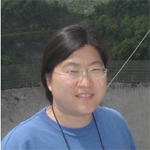 Hannah Jang-Condell University of Maryland and NASA's Goddard Space Flight Center hannah@astro.umd.edu
|
Dr. Hannah Jang-Condell is currently a Michelson
Postdoctoral Fellow in exo-planet research at the
University of Maryland and NASA's Goddard Space
Flight Center. She received an S.B. in Physics from the
Massachusetts Institute of Technology in 1997 and a
Ph.D. in Astronomy from Harvard University in 2004,
and was an NSF Graduate Research Fellow from 1997-
2001. From 2004-2007 she was a Carnegie Fellow at t
Carnegie Institution of Washington in the Dep
Terrestrial Magnetism. Dr. Jang-Condell's resear
focuses on planet formation in circumstellar disks,
analyzing the interactions between nascent planets and
disks to determine how these interactions affect the
forming planets and to identify signatures of
ongoing planet formation in young circumstellar disks.
Dr. Jang-Condell has served on the Committee on the Status of Women in Astronomy (CSWA)
of the American Astronomcal Society (AAS) since 2006. She edits the AASWOMEN weekly
email newsletter produced by the CSWA and has helped organize and lead CSWA splinter
sessions at AAS meetings. As a mother of two children ages 4 and 7, Dr. Jang-Condell
advocates for generous maternity leave and affordable childcare, seeking to help enable women
to balance working in science with having families.
|
 Young-Kee Kim The University of Chicago and the Enrico Fermi Institute ykkim@fnal.gov
|
Young-Kee Kim, an internationally acclaimed experimental particle physicist whose research focuses on understanding the fundamental constituents of matter and the interactions between them, is a Professor of Physics in the College of The University of Chicago and the Enrico Fermi Institute. Since July 2006, she has been Deputy Director of Fermi National Accelerator Laboratory (FNAL). In this role, Kim she leads and manages development and implementation of the strategic plan and establishes the oversight mechanisms to ensure compliance with the plan as well as the ability to adapt to changing circumstances. The many contributions that Dr. Kim has made to management at FNAL include, commissioning an ILC task force to increase involvement of FNAL particle physicists in the ILC community, creating an Office Space task force to facilitate synergy between different components at the laboratory, and establishing the International Fellows at Fermilab Program to bring outstanding students, post-docs and scientists to FNAL from foreign institutions. Prior to her role as Deputy Director of FNAL, Kim served as Co-director for the Collider Detector at Fermilab (CDF Run II) collaboration, leading the integration, planning, commissioning and operations of the CDF and serving as co-spokesperson. Under her watchful eye, the CDF collaboration successfully completed two of the largest high-energy experiments ever run, representing an investment of over $300 million with the involvement of over 800 international scientists. This collaboration resulted in twice the number of peer-reviewed papers and completion of the $12M trigger and calorimetry upgrades to the CDF Run II detector on time, on budget and safely with no environmental notices of violations (NOVs).
|
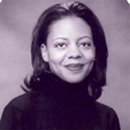 Kelly Milagro Mack University of Maryland Eastern Shore kmmack@umes.edu
|
Dr. Kelly Mack received her Bachelor of Science degree from the University of Maryland Eastern Shore (UMES) in Biology and later the PhD degree from Howard University in Physiology. Currently, she is a Professor of Biology in the Department of Natural Sciences, making her the first African American woman and the first woman ever to be promoted to that rank in the history of the Department of Natural Sciences at UMES. Dr. Mack has had extensive training in the area of cancer research. During her tenure as a graduate student at Howard University, she was involved in ongoing studies related to the cellular accumulation of cisplatin, an antitumor agent, in estrogen-sensitive and -insensitive human breast cancer cells in the presence of terbium, a lanthanide metal and calcium channel blocker. At Howard, she developed expertise in sterile tissue culture techniques, fluorescence spectroscopy, and atomic absorption spectrophotometry. Since then, her research efforts have varied in focus over the past several years to include mechanisms of androgen regulation of prostate tumor cells, the use of demethyltransferase inhibitors and histone deacetylase agents in inducing the reexpression of the estrogen receptor in human breast tumor cells, and breast cancer disparities. Most recently, Dr. Mack’s research has focused on the use of bioflavonoids in the regulation of proliferation of estrogen receptor positive (ER+) and estrogen receptor negative (ER-) breast tumor cells.
|
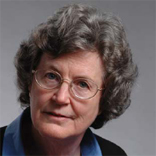 Anne MacLachlan University of California Berkeley maclach@calmail.berkeley.edu
|
Anne MacLachlan is a Senior Researcher at the Center for Studies in Higher Education at the University of California Berkeley since 1997. Her primary research focuses on issues of women and minorities in graduate education and professional life, and for the last 11 years more narrowly on women and minorities in science, in the educational pipeline, graduate school, postdoctoral years, and on faculty. For the last 20 years she also has developed and presented professional development programs on finding and keeping an academic job, grant writing, and scholarly publishing. She participated with others in a 3 year multipart career development series for physics graduate students, and has given a 4 part series on finding academic job to postdocs In spring of 2008 one of her presentations was to assistant women professors of color at George Tech for their supplementary ADVANCE program. She has written on racism and sexism in graduate school, on the experience of underrepresented groups/women in graduate school in STEM fields, and how the graduate experience of women in STEM can be improved. She has also written on institutional barriers to scientists’ understanding of diversity, on the experience of minority and women faculty, and on career paths of women and minorities. Her most recently completed project is a longitudinal study of minority Ph.D.s in science and engineering earned at U.C. from 1980 to 1990, (Spencer Foundation and UC funding).
|
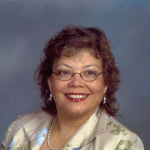 Luz J. Martínez-Miranda University of Maryland ljmm@umd.edu
|
Dr. Luz J. Martínez-Miranda, one of the U.S. Delegation Co-Leaders, is an Associate Professor of Materials Science in the Dept. of Materials Science and Engineering at the University of Maryland. Her research interests are in the field of liquid crystals. She has studied their interfacial properties for display applications. Presently, she uses liquid crystals as models for biological systems. She has been involved in programs that advance the careers of women and minorities for many years, and has worked in education programs for children to attract them into the sciences and engineering. She has been a member of the Committee of Minorities of the APS and has been a member and chair of the Committee on the Status of Women in Physics of the APS. She is at present the president of the National Society of Hispanic Physicists. She was made fellow of the American Association for the Advancement of Science for among other things her work for women, minorities and her efforts in showing students the joy of research.
|
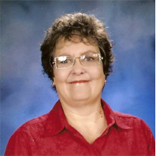 Catherine A. Massey Las Cruces High School, NM camassey@zianet.com
|
Catherine A. Massey has been teaching Physics, AP Physics B and C and Physical Science at Las Cruces High School in New Mexico since 1995. She has sponsored LCHS’s Physics Club, helped t develop district science curricula and common assessments and assisted with departmental and school wide projects. In 2000-2001 she sponsored a winning team of 12 LCHS students in NASA’s Fly High program, accompanying them to Johnson Space Center to perform weightless experiments on the KC-135 "Weightless Wonder" aircraft. Her Physics team has taken first place at New Mexico State University’s Physics Olympics eight times and placed second once. Catherine earned a Master of Arts in Curriculum and Instruction in 1994 and a Bachelor of Science in Physics with a minor in Mathematics in 1992 at New Mexico State University. She holds teaching licensure in the State of New Mexico in Secondary Science, Math and Social Studies. She is a current member of American Association of Physics Teachers and the National Education Association.
|
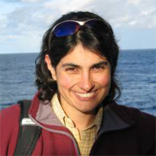 Nergis Mavalvala Massachusetts Institute of Technology nergis@ligo.mit.edu
|
Nergis Mavalvala is associate professor of Physics at the Massachusetts Institute of Technology. She works on experimental gravitational wave detection and precision measurement at the quantum limit. She received her B.A. in Physics and Astronomy from Wellesley College in 1990, and completed her Ph.D. in 1997, under the supervision of Rai Weiss at MIT. Her thesis work involved developing and testing the alignment sensing and control systems for the LIGO (Laser Interferometer Gravitational-wave Observatory) interferometers. As a postdoctoral researcher at the California Institute of Technology, she was heavily involved in all aspects of the design and commissioning of the LIGO detectors. Since 2002 she has been on the Physics faculty at MIT, where she has continued her involvement with LIGO, but has also branched out into experimental quantum optics and quantum measurement in macroscopic mechanical systems. She enjoys teaching and interacting with students as much as she does her research. Nergis has been a Sloan fellow, and is a member of the American Physical Society and the Optical Society of America. Nergis's research interests span two related fields – experimental gravitational wave (GW) interferometry, and the quantum limits of precision measurement. She has been involved in experimental activities within the LIGO Laboratory over the past fifteen years, including design and implementation of interferometric sensing and control systems, commissioning of the initial LIGO detectors, study of quantum effects in future GW detectors, use of squeezed quantum states of light to enhance GW detector performance, and measurement of quantum behavior of macroscopic objects.
|
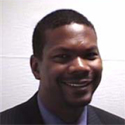 Christophe McCray Institute of Defense Analysis cmccray@ida.org
|
Dr. Christophe L. McCray finished his bachelor’s degree at North Carolina (A&T) State University in physics graduating summa cum laude. He completed his Masters (1997) and PhD (2001), in physics at Hampton University in Hampton Virginia. His dissertation research focus was in Stimulated Raman Scattering where he focused on development of novel Raman lasers for measurements of Ozone in the Troposphere, which resulted in over 10 published papers in laser system technology. McCray has nearly 10 years of laboratory experience in the Research and Development (R&D) field of laser technology. From 2001 to 2004 he worked as a program manager for defense contractor DRS Technologies (Melbourne, FL), helping develop diode pumped laser range-finder systems for guiding fighter pilots onto the decks of aircraft carriers. From 2004 to 2005 he worked with ITT AES (Albuquerque, NM), working frequency agile laser system that would be able to scan for chemical and biologic weapons agents in the mid infrared region from 500 Hz to 1 kHz.
|
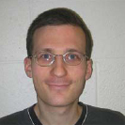 Nick Murphy University of Wisconsin - Madison murphy@astro.wisc.edu
|
Nick Murphy is a graduate student in astronomy at the University of Wisconsin - Madison. His research interests include computational and theoretical plasma physics with applications to astrophysics, space physics, and laboratory plasma experiments. He plans to finish his degree in 2009. Before moving to Madison, Nick attended the University of Michigan - Ann Arbor, receiving his bachelor's degrees in astronomy, physics, and mathematics in 2003. Since his first year in graduate school, Nick has been active in the Teaching Assistants' Association, the graduate employee union at the University of Wisconsin. In particular, he focuses on contract enforcement, working on issues such as overwork, hostile work environment, and pregnancy discrimination. His interests include vegan cooking, science fiction, and spending too much time in used book stores.
|
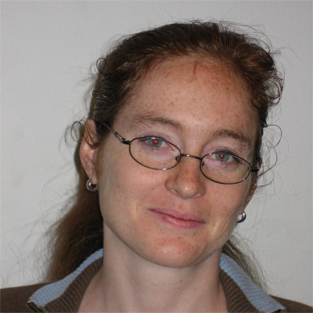 Christine Nattrass Yale University nattrass@rhig.physics.yale.edu
|
Christine Nattrass is a sixth year graduate student in relativistic heavy ion physics at Yale University anticipating graduating in May, 2009. Christine got her Bachelors degree at Colorado State University with majors in physics, biochemistry, and physical science and minors in chemistry, math, and German. As an undergraduate she spent five months at Leiden Universiteit in the Netherlands and two months at CERN in Switzerland. She tutored throughout her undergraduate career and is a College Reading and Learning Association certified tutor. She has taught throughout graduate school and was a 2008 recipient of an AAPT teaching award. Christine is doing her doctoral research on jets in heavy ion collisions in the STAR collaboration at Brookhaven National Laboratory (BNL). She served two years on the BNL RHIC/AGS User's Executive Committee as a student and post doctoral fellow representative and one year on the board of the BNL Association for Students and Post-doctoral fellows. She is serving as a junior representative to the STAR council and was the 2008 winner of the BNL Gertrude Goldhaber award.
|
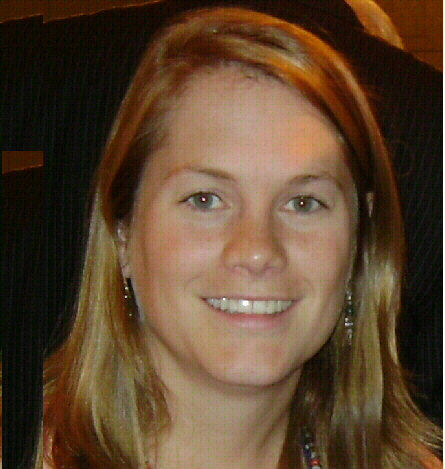 Bonna Newman Massachusetts Institute of Technology bonna@mit.edu
|
Bonna Newman researches novel materials for use in photovoltaic devices at the Massachusetts Institute of Technology. She graduated summa cum laude from the University of Colorado in 2001, with a BS in Engineering Physics. Recently, she received her PhD from the physics department at MIT for experimental work in collisions of cold dilute gases of atoms. During her graduate studies she became very interested in using her technical education to help develop sustainable and renewable energy systems. She was awarded a Clare B. Luce Fellowship through the MIT Energy Initiative and has turned the focus of her research from fundamental atomic physics studies to the more applied condensed matter systems used in solar photovoltaics. The Laboratory for Photovoltaic Research focuses on research to expand understanding of function, properties and structures of both silicon based and other materials for photovoltaic systems. Throughout her life, she has been very active in community work. As an undergraduate she received the Outstanding Graduate award from the School of Engineering and Applied Science at CU, Boulder, for balancing her academics with various other activities including teaching English to non-native English speakers, a safe-ride home program, writing and editing for the Colorado Engineer Magazine, and playing on the developmental Western Territory women’s rugby team.
|
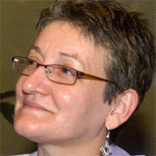 Idalia Ramos University of Puerto Rico at Humacao iramos@mate.uprh.edu
|
Idalia Ramos is a faculty in the Physics and Electronics Department of the University of Puerto Rico at Humacao (UPRH). She is currently the PI of the PENN-UPR Partnership f Research and Education in Materials, a collaborative program between the University of Pennsylvania and the University of Puerto Rico. Her research is in the area of materials for devices and sensors. Her studies include a BS in Physics from UPR and MSEE from Penn. Over the years she has implemented various efforts to promote women students and faculty in physics and other sciences. These include workshops for women undergraduates and HS students (lab experiences, gender issues, etc.), mentoring and undergraduate research experiences. She has also been the advisor of UPRH’s Feminist Laboratory, a group of women science students founded in 2000. She was the PI of an NSF ADVANCE Institutional Transformation grant awarded to UPRH in 2001 to promote women in the science faculty. She is a member of UPRH´s Committee on the Status of Women and the Coordinating Committee of the Program to Prevent the Violence against Women on Campus.
|
 Teri Lynn Robinson University of California, Santa Barbara trobinson@chem.ucsb.edu
|
Dr. Teri Lynn Robinson is a postdoctoral fellow in the Department of Chemistry and Biochemistry at the University of California, Santa Barbara (UCSB). She was awarded the University of California President’s Postdoctoral Fellowship in 2007. She obtained a bachelor’s degree in chemistry and mathematics at Jackson State University in Jackson, MS. She received a M.S. in chemistry from Louisiana State University (LSU) and a Ph.D. in theoretical chemistry from the Department of Chemistry at Jackson State University (JSU). At LSU, she served on the Graduate Student Council. During this time she was also the Chairperson of the Mentoring Advisory Board for the Southwest Region of the American Chemical Society. As a graduate student, she has earned many honors and awards including the LSU Graduate School Fellowship, the Alonzo Crim Student Award for Excellence in Mathematics and/or Science, and the National Institutes of Health Pre-doctoral Fellowship. Dr. Robinson was selected in 2005 as one of 45 United States graduate students to be awarded the Nobel Fellowship to attend the 54th Lindau-Nobel Meeting of Nobel Laureates and Students in Lindau, Germany.
|
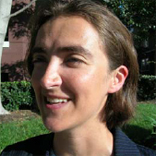 Molly Rossow University of California Irvine rossowm@uci.edu
|
Molly Rossow is a graduate student in biomedical engineering at the University of California at Irvine (UCI). She obtained her bachelor’s degree in electrical and computer engineering at Rice University and her master’s degree in bioengineering at the University of Illinois Urbana Champaign. Molly’s current research involves developing optical techniques to measure blood flow in exposed blood vessels during surgery. Molly served as co-chair of the UCI Engineering Graduate Student Council in fall of 2007 and was a founding member of this organization. At UCI she is also the president of the ZotSpeak Toastmasters club. As a member of the Society of Women Engineers (SWE) Molly promotes engineering and science careers to girls in the community and has served as a judge at the Orange County Science Fair. In 2007 she received a scholarship from the Orange County SWE chapter and was a finalist in the SWE national poster competition. She is also a member of the Biomedical Engineering Society, the Biophysical Society and Sigma Xi.
|
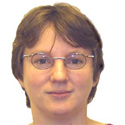 Juana Rudati Xradia jrudati@xradia.com
|
Juana Rudati earned her Ph.D. in experimental atomic and optics physics at State University of New York at Stony Brook. Employed as a postdoc by Argonne National Laboratory, she was stationed at Stanford Linear Accelerator Center (SLAC). Her research, in collaboration with groups at both laboratories, was on laser pumped/x-ray probed ultrafast processes using the Advanced Photon Source at ANL and the predecessor of the x-ray free electron laser at SLAC. She had worked exclusively with visible light lasers during her graduate years and used her postdoc years for expanding her research experience to xrays. As a Project Manager at Xradia Inc., Dr. Rudati’s work currently concentrates on developing, improving and finding new applications for high-resolution x-ray microscopes. She still frequents both ANL and SLAC to perform synchrotron experiments on the microscopes built by Xradia. She joined Xradia in 2006.
|
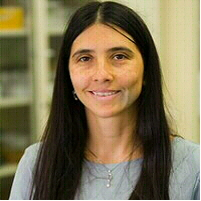 Lea Ferreira dos Santos Stern College for Women, Yeshiva University lsantos2@yu.edu
|
Lea Ferreira dos Santos is an Assistant Professor in Department of Physics at Stern College for Women, Yeshiva University. She received a Ph.D. in theoretical physics from the University of Sao Paulo, Brazil, in 2000, under the supervision of particle physicist Prof. Carlos O. Escobar. Three postdoctoral positions followed. At Yale University (2000-2001), she worked with nuclear physicist Prof. Dimitri Kusnezov in random matrix theory and two-body random ensembles; at Michigan State University (2002-2004), she studied the interplay between interaction and disorder in quantum many-body systems, such as quantum computers, with condensed matter physicist Prof. Mark I. Dykman; and at Dartmouth College (2004-2007), she developed new dynamical decoupling techniques with quantum information physicist Prof. Lorenza Viola. She has been awarded two fellowships from the State of Sao Paulo Research Foundation (FAPESP), one from the New Zealand Official Development Assistance (NZODA), and one from the Brazilian National Council for Scientific and Technological Development (CNPq). She has almost 30 publications in scientific journals and serves as a referee to various scientific journals in physics and mathematics. Her research interests range from quantum coherence control to quantum chaos and many-particle localization, with special emphasis to the relevance of these topics to quantum information science. She is now particularly interested in the problem of transport in quantum many-body systems and how coherent control methods may be used to enhance ballistic conductivity.
|
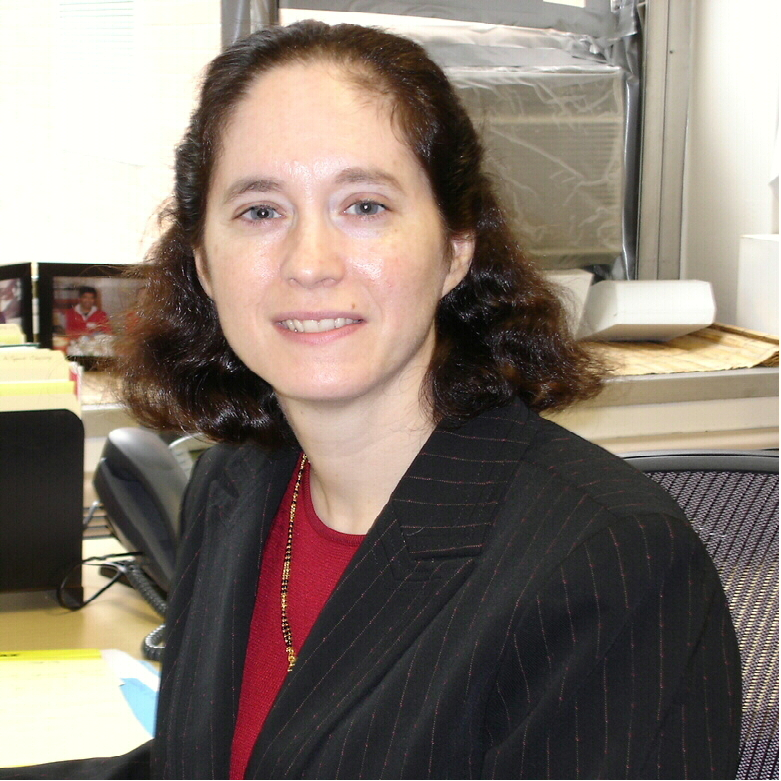 Elizabeth H. Simmons Michigan State University esimmons@pa.msu.edu
|
Dr. Elizabeth H. Simmons is Dean of Lyman Briggs College and a Professor of Physics in the Michigan State University Department of Physics and Astronomy. Lyman Briggs is a four-year residential undergraduate college at Michigan State University that focuses on the study of science in its historical, philosophical, and sociological context. After completing her undergraduate degree at Harvard University, Simmons earned an M.Phil. in physics at Cambridge University as a Churchill Scholar. She returned to Harvard for her doctoral degree and postdoctoral fellowship, and then spent a decade as a professor at Boston University before joining the MSU faculty in summer 2003. She is a Fellow of the American Physical Society and a General Member and Officer of the Aspen Center for Physics. In 2005, she won the ACE Michigan Network's Distinguished Woman in Higher Education Leadership Award. Simmons is a particle theorist, whose research focuses on the origins of the masses of the elementary subatomic particles, particularly that of the top quark. She enjoys teaching physics courses at all levels, from introductory courses for freshmen to graduate courses. Part of her mission as an educator is to encourage more students (especially from groups now under-represented in physics) to consider studies and careers in the physical sciences.
|
 Herman B. White Fermi National Accelerator, North Central College HWhite@fnal.gov
|
Dr. Herman B. White is a scientist at the Fermi National Accelerator Laboratory, currently the world’s highest energy particle physics laboratory, and an Adjunct Professor of Physics at North Central College in Naperville, Illinois. He completed undergraduate studies concentrating in physics at Earlham College, graduate studies in nuclear and accelerator physics at Michigan State University, and graduate studies in high energy and particle physics at Yale University and Florida State University. He earned a B.S, M.S., and Ph.D. degrees in physics. His current research in particle physics involves rare Kaon decay measurements, Neutrino research, and Muon conversion experiments. Dr. White is a leader in supporting opportunities in the field of physics for students and scholars from the United States and many other parts of world, exemplified by his service in the American Physical Society, and other organizations. He also serves on US advisory panels for the National Science Foundation, The National Academies, and The Department of Energy.
|
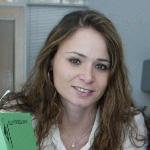 Yevgeniya V. Zastavker Franklin W. Olin College of Engineering zhenya@olin.edu
|
Dr. Yevgeniya V. Zastavker, one of the U.S. Delegation Co-Leaders, is currently an Associate Professor of Physics at the Franklin W. Olin College of Engineering where she came after spending two years at Wellesley College as a visiting faculty. Born and raised in Kiev, Ukraine, she came to the United States in 1990 having received two years of education at the Kiev Pedagogical College and a degree from one of Kiev 's Schools of Music. She graduated from Yale University with a B.S. in physics and holds a Ph.D. in biological physics from MIT. Her current research interests include (i) investigation of physico-chemical properties of biological and synthetic self-assembling membranes with significant biomedical and industrial applications; and (ii) science/engineering education research, where she is particularly interested in the issues of gender at the intersection with innovative pedagogical and curricular science/engineering practices. Dr. Zastavker has been a member of the APS Committee on the Status of Women in Physics since 2007. She has been asked to represent the U.S. at the three IUPAP (International Union of Pure and Applied Physics) Conferences on Women in Physics and co-lead the US delegation to the Third Conference in October 2008 along with Dr. Luz Martinez-Miranda and Ms. Renee Horton. Dr. Zastavker continues to work on the issues of women and minorities in science/engineering both through her research and active participation in various professional societies.
|
|
Any opinions, findings and conclusions or recomendations expressed in this material are those of the author(s) and do not necessarily reflect the views of the National Science Foundation (NSF). |
|